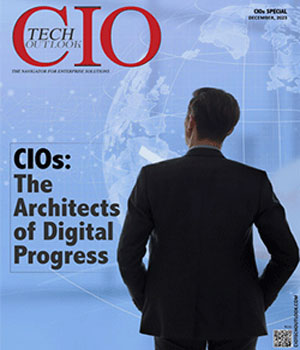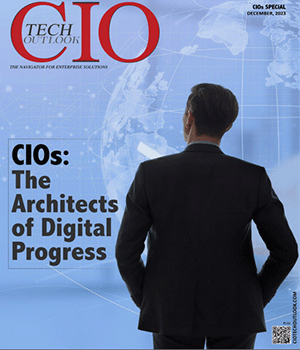
Digital Transformation - Darwinism Or Dwarfism?
Ajay Kumar Jha, Head, Device Technology, On Device Applications & Data VAS MTS - Sistema Shyam Teleservices | Monday, 09 October 2017, 09:27 IST
 In last few decades, digitalization has gone global and inter-generational. Digital transformation is the change associated with the application of digital technology in all aspects of human society. In general, it refers to the adoption of information technology to disrupt traditional business practices. It has changed its form and factor and is now available on mobile by being collaborative. Our lives are continuously becoming connected through objects or devices which connect themselves to the internet. Internet redesigns our everyday experience a little bit, every day. New usages are rapidly adopted. Although this is pioneered by millennial, older generations are only a yard behind in adopting these new practices. The growing penetration of smart phones is driving widespread, global usage of the internet and social networks. With the installation of smart systems in workplace, homes and cars, and other devices (wearable, utility) connected objects will invade our available time, whether we are travelling, in the street, or sleeping, “Omnipresence. There is a need to; rethink innovation completely by using incubators, recruiting critical new competencies and establishing new development and marketing practices. People should not simply adopt the new digital world, but truly embrace its various dimensions. Accelerate the growth of digital culture throughout the organization. An era where technology and society are evolving faster than businesses can naturally adapt. This sets the stage for a new era of leadership, a new generation of business models, charging behind a mantra of “adapt or die”, “evolve or perish”.
In last few decades, digitalization has gone global and inter-generational. Digital transformation is the change associated with the application of digital technology in all aspects of human society. In general, it refers to the adoption of information technology to disrupt traditional business practices. It has changed its form and factor and is now available on mobile by being collaborative. Our lives are continuously becoming connected through objects or devices which connect themselves to the internet. Internet redesigns our everyday experience a little bit, every day. New usages are rapidly adopted. Although this is pioneered by millennial, older generations are only a yard behind in adopting these new practices. The growing penetration of smart phones is driving widespread, global usage of the internet and social networks. With the installation of smart systems in workplace, homes and cars, and other devices (wearable, utility) connected objects will invade our available time, whether we are travelling, in the street, or sleeping, “Omnipresence. There is a need to; rethink innovation completely by using incubators, recruiting critical new competencies and establishing new development and marketing practices. People should not simply adopt the new digital world, but truly embrace its various dimensions. Accelerate the growth of digital culture throughout the organization. An era where technology and society are evolving faster than businesses can naturally adapt. This sets the stage for a new era of leadership, a new generation of business models, charging behind a mantra of “adapt or die”, “evolve or perish”.
Is this is a time of Digital Darwinism or Dwarfism?
Rather than react to change or be disrupted by it, organizations are investing in digital transformation to adapt and outperform peers. In every industry, the race to drive differentiation and growth through business transformation is accelerating. Within this context, the key enablers of digital transformation are mobile & cloud computing, enterprise application software, software as a service and web service integration. These enablers are main stream at this point and have been widely adopted, but this Status Quo is being challenged by few key digital transformation enablers
• Artificial Intelligence & Machine Learning
• Big Data & Predictive Analytics
The three V’s of Data
Today data from numerous sources are digitized. Digitization of large datasets is characterized by the three V’s – Huge Volumes of data from a large Variety of sources which needs to be processed at high Velocities. If we could exploit such vast amount of data, the impact in terms of value would be huge. Data has to be regarded as a resource, just like people, material and money, by which it could greatly influence the future of competitive business practices. Technologies that utilize Data analysis to infer meaning from patterns that support decision making are collectively referred to as “Analytics”. Big Data in combination with machine learning, expert systems and analytics is a natural evolution. By Using Big Data, we can identify trends and patterns in behaviour, but extracting meaning and contextual information to monetize the data will be driven by AI.
The development of new competencies revolves around the capacities to be more agile, people oriented, innovative, customer-centric, streamlined, efficient and able to induce & leverage opportunities to change the status quo. The goal is an ability to move faster from an increased awareness and forecast capability regarding changes to decisions and innovation. Digital transformation is the reinvention of an organization through the use of digital technology to improve the way it performs and serves its constituents. Digital refers to the use of technology that generates stores and processes data. The term transformation refers to a fundamental change to an organization's day-to-day business from the types of products and services it produces, to how it delivers them. Digitally transformed businesses typically develop an ecosystem that blurs the lines between supply chain, partner, customer, crowd, and employee and both strategy and execution are heavily influenced by this ecosystem.
Today’s innovation to tomorrow’s legacy
Transformation is more caterpillars to butterfly process, moving gracefully from one form of working to an entirely new one. Strategy is a necessity, but it's fundamentally meaningless if you can't execute on it. There's no silver bullet to becoming digitally transformed, by definition, it's an ongoing process – but you can take advantage of certain tactics. That too will change over time, with today's innovations becoming tomorrow's legacy. It's better to do that than to stick with yesterday's legacy.
CIO Viewpoint
Hyper-Converged Infrastructure: The Next Big...
By Amit Jaokar, EVP - IT, Choice International
Embracing Technology: Need of the Hour in BFSI
By Nikhil Bandi, SVP & CIO, Vistaar Financial Services
Three Pronged Approach For Digitization In Life...
By Ekhlaque Bari, EVP & Head Technology - Max Life Insurance
CXO Insights
A Glimpse of A Changed AI Perspective in India
By Dr. Vijay Srinivas Agneeswaran, Senior Director of Technology, Sapient
Social Networking and the Enterprise
By Arindam Sen, SVP, Schneider Electric
Digital Transformation - Darwinism Or Dwarfism?









